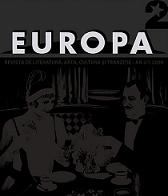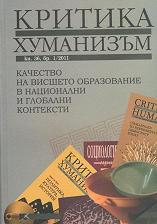
Finding One's Own Path
Finding One's Own Path
Current Slovak prose is polyphonic thanks to a number of authors with strong personalities and their own distinctive literary style. In spite of their solitariness and individuality, in their literary works they have several themes in common, which then appear to be central and typical, such as, for example, memory, ideology, personal situation and home and the world.
More...

